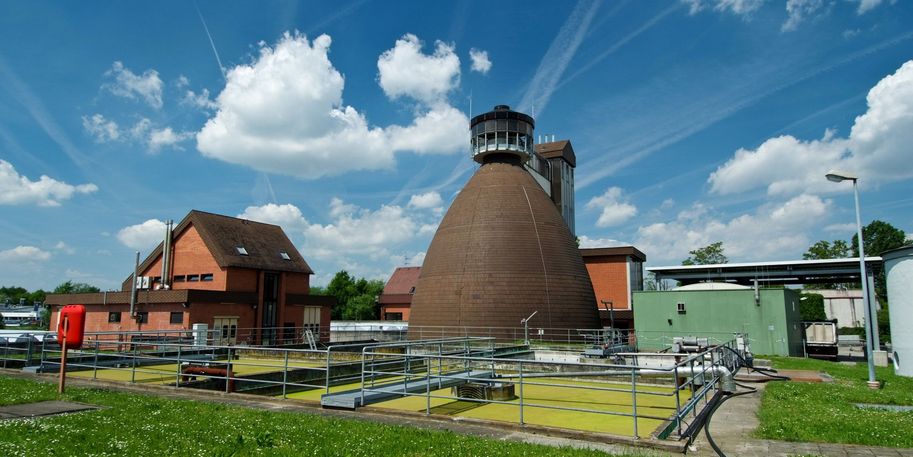What role will sewage treatment plants play in the energy system in the future?
At 4.2 TWh per year, Germany’s wastewater treatment plants are the largest consumers of electricity in the municipal sector, being able to save and produce energy at the same time. In the course of energy transition the amount of volatile energy sources like wind and solar power plants will increase, leading to rising standards regarding the load management of energy networks. The question of how wastewater treatment plants as big energy users, storers and producers can contribute to an increased stability of energy networks needs to be answered urgently.
Joint development of technical approaches and planning tools
By mid-2017, inter 3 and its partners will develop appropriate technical approaches and planning tools within the BMBF-funded project "Wastewater treatment plant of the future: Energy storage in interaction with technical infrastructure between the poles of energy generation and consumption”.
Using the example of the city of Darmstadt (Hessia) and in cooperation with HSE Abwasserreinigung Gmbh & Co.KG, EnviroChemie GmbH, Dr. Born-Dr. Ermel GmbH, Clausthal Institute of Environmental Technology (CUTEC), m+p consulting Süd GmbH and the TU Darmstadt as well as the Fraunhofer Institute for Interfacial Engineering and Biotechnology necessary technical approaches for more flexible energy flows and planning tools for the implementation of the sewage treatment plant as an energy provider will be developed.
Focus on sludge treatment
On behalf of the BMBF the team will examine the transition for flexible energy flows of a wastewater treatment plant in the case of technical, ecological, economic and social aspects. Particular focus will be on sewage sludge treatment as energy consumer, storer and producer. In detail, processes related to electricity, heat and cooling energy as well as possible storage devices like sludge, substrates or biogas will be analysed. Moreover, the role of sewage treatment plants as energy suppliers will be assessed.
Different variations of sewage treatment processes for a more flexible energy load management in interaction with other infrastructure (e.g. waste-fuelled power station) and industry will be assessed. Environmental impacts will be evaluated by an ecological balancing. inter 3 will identify potential drivers and barriers and will draw conclusions for a successful implementation of these processes in real life.
The project is funded until mid-2017 by the Federal Ministry of Education and Research (BMBF) within the program "Future-oriented Technologies and Concepts for an Energy-efficient and Tesource-saving Water Management” (ERWAS) to the amount of 2.85 million Euros.

![[Translate to English:] Porträt von Axel Dierich](/fileadmin/_processed_/d/3/csm_21c962_ls_weiss-226_cf0c8064af.jpg)
![[Translate to English:] [Translate to English:]](/fileadmin/_processed_/3/f/csm_20180107_gefoerdert_vom_bmbf_deutsch_64c5d2497c.jpg)